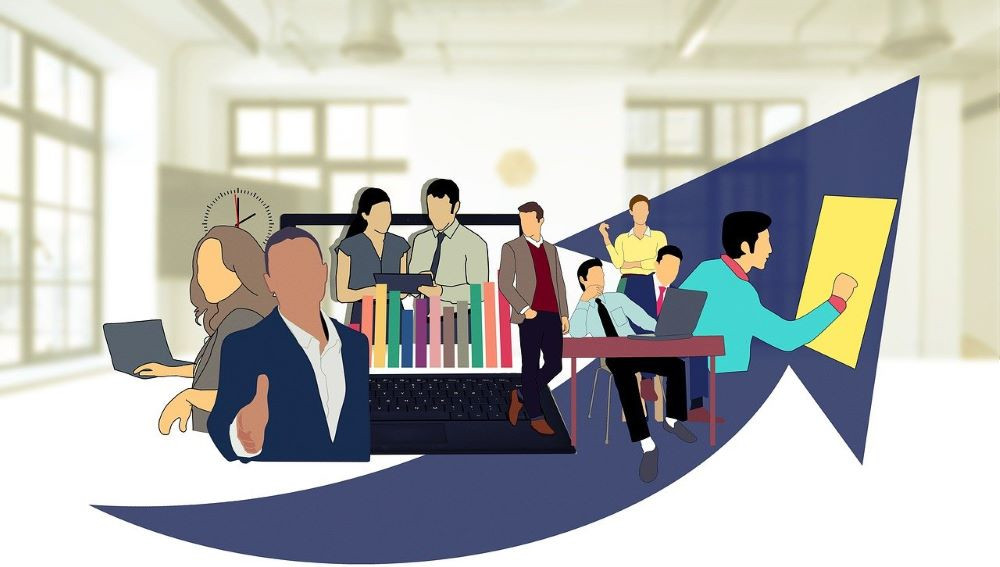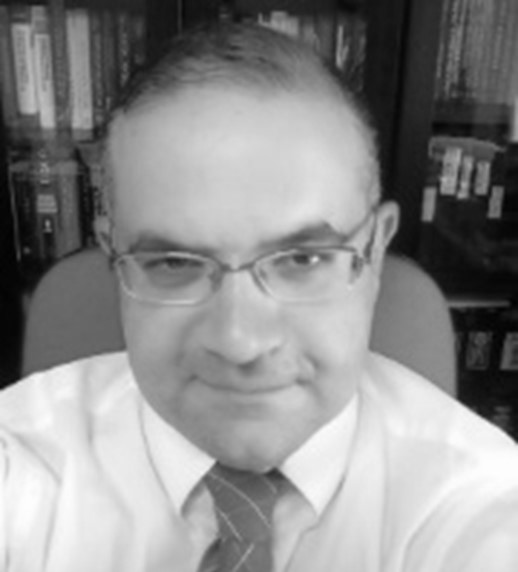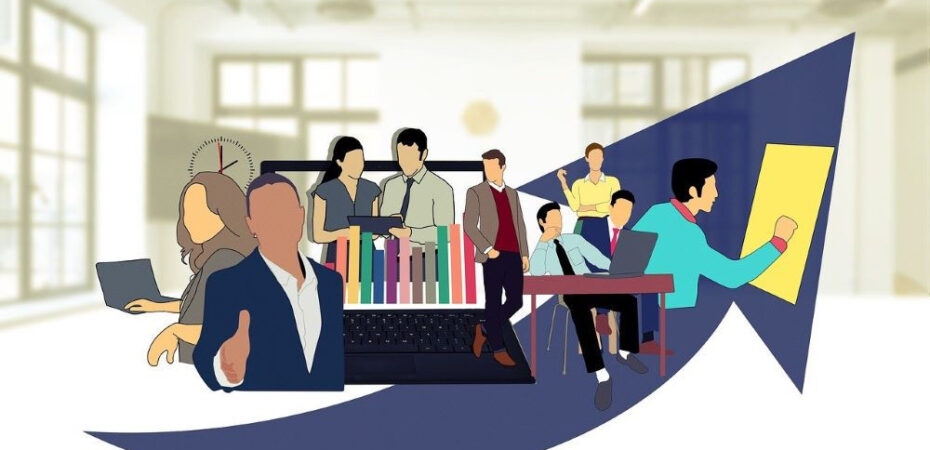
In this insightful post, Prof. Dimitrios I. Gerogiorgis, Personal Chair of Process Systems Engineering at The University of Edinburgh, explores the dynamic integration of active learning seminars in engineering education. Drawing on his extensive academic and research experience, Prof. Gerogiorgis delves into the 4S strategy—Set, Spark, Stroll, Summarize—crafted to maximise student engagement and learning effectiveness in hybrid learning environments. This post reflects on the innovative pedagogical approaches that have not only earned recognition, such as the EUSA Teacher of the Year Award in 2024 but have also profoundly impacted the way engineering concepts are taught and grasped. This post belongs to the Jan-March Learning & Teaching Enhancement theme: Engaging and Empowering Learning Engaging and Empowering Learning with Technology.
Active Learning Seminars are a great way to foster continuous engagement via collaborative sessions and instant feedback, hence it is widely used in the School of Engineering. The EUSA Teacher of the Year Award (2024) was conferred to the Oil & Gas Systems Engineering course, so this Teaching Matters Blog post outlines the 4S strategy for effective planning and maximising benefits.
How can we embark upon Active Learning Seminars without some basic study?
Global Disclaimer: there is no such way. Provide video-recorded lectures and/or assign required readings, emphasising that this is a fundamental prerequisite for fruitful participation. A Weekly Planner provided at the start of the semester is very helpful in organising all essential information.
The 4S strategy: Set, spark, stroll, summarise
Set the stage for collaboration
- Create a welcoming, controlled but above all safe and engaging environment
- A solid 2-hour block (if you can have it) is much better than two isolated 1-hour slots
- If you can have it, start with 1-2 simpler problems in the first part, then a longer one
- Plan the problem/activities meticulously (post online with timer, at the very start)
- Write your own problems (even if simplistic/’inaccurate’: wide entrance pathways)
- Paper saves: Print enough handouts for everyone (monitors must remain free…)
- Check and test your IT resources (PC/laptop, A/V projector, doc cam, speakers)
- Prescribe their IT resources (pen, paper, laptops, tablets, Google – but not solutions!)
- Pick problems which combine many attractive characteristics (solve them ahead):
- Pick the most interesting
- Pick the most fun
- Pick the counter-intuitive
- Pick the controversial (discussions guaranteed)
- Pick the quantitative (range, not unique, results)
- Pick those in need of assumptions and approximations
- Pick those conducive to estimates (lengths, heights, sizes, flows)
- Strip the problem down to the bare-bone fundamentals, focus on the key idea
- Pick problems which combine many attractive characteristics (solve them ahead)
- Problems can combine ideas from multiple (but all covered!) previous units/chapters
Spark the active seminar
- You must draw the curtain to excite minds, but you’re not lecturing. Keep it brief
- Tell a story that seems exciting to pursue and feasible within 30-40 minutes (or less)
- If there’s classroom props, use them (e.g. chalk+erasing sponge = rock types)
- If there’s impromptu props, use them (e.g. water bottle+straw = oil reservoir+well)
- If there are publicity props (e.g. oil price news, new major projects), show them (web)
- If you have powerful metaphors, recite them (e.g. numerical optimisation is a quest to find an apex in a dark ‘Night On The Bare Mountain’ – even better, play the music!)
- Encourage them to create, write, and especially draw/visualise. Diagrams are critical
- Excite your actors as much as you can, then set them free to perform (do you know the story of Tom Hanks about how Clint Eastwood directs?… you’re searching, yes?)
- Clint’s soft ‘OK… Go!’ may have to be with a loud and excited voice (possibly 3 pm)
- Provide a clear ‘finish time’ (at least 10-15’ before break/end) so that you summarise
Stroll around the classroom
- Student groups (2-3, no more) must sit together always (they can change, or not)
- You must be able to move around (not all classrooms work), safely (no power cables)
- Wear comfy shoes! Pull a chair to talk to them (nicer than standing), but leave quickly
- Students can move, in moderation (not all the time); allow it, but only if asked for…
- Keep noise at healthy/creative levels (discreetly advise any ‘loud’ groups, if you must)
- Encourage them to work silently for a few minutes, then report to peers, and repeat
- Be (and inspire them to be) inclusive: some are quiet, some too talkative, all is good
- Make sure you distribute your time up/down/around; all will feel included and valued
- Emphasise the value of discussing and then writing assumptions clearly
- Praise advances (know names); repeat aloud key questions/challenges discovered
- If there’s a heated argument, use it (see ‘Summarise’ below); usually it’s profound
- Smile and welcome all opinions, to nurture and encourage discussions. Don’t judge
- Encourage them (when they ask!) to find/use established handbooks/references
- … but don’t prescribe this at the start. It’s crucial they discover/experience this need
- Many ways to solve it? Each student/group can try a different one (don’t tell ahead!)
- They’ll work in the real world; BBC, Bloomberg, FT.com – these are everyday tools
- Numerical answers are key – when one has solved it, ask them to raise hand. Check
- Uncertainty is even better; instead of a single number, it’s average ± deviation
- Pedagogy here proceeds by continuous critical review and discovering resources, so the problem must be open-ended (substituting values in formulae is elementary…)
- Figuring which tool fits which purpose is valuable meta-knowledge (tacit learning)
Summarise and inspire beyond the session
- For ‘early achievers’: praise quietly, ask them to work on generalisations/other cases
- The problem is easier than you thought if a few groups solve it fast – save time
- Discourage ‘solution manual’-mode sharing of solutions among groups – no benefit
- Be Inclusive 1: collect ‘Summary Pages’ from each group (for doc cam projection)
- Be Inclusive 2: open the floor for each group to contribute solution (write on board!)
- Be Inclusive 3: for questions/dissent/dissatisfaction, promise to discuss, don’t dismiss
- Tabulating numerical answers and computing disparity (%) on the board is rewarding
- Celebrate success – what is just achieved is ‘crowdsourcing’ a solution to the problem
- You don’t need to ‘solve out’ everything on board, but you can illustrate key points
- Provide at least one further challenge (or solution details) for further study and work
- Never post solutions on the day; use a poll to have them advise how soon they prefer
 Dimitrios Gerogiorgis
Dimitrios Gerogiorgis
Prof. Dimitrios Gerogiorgis is a Fellow of IChemE, Senior AIChE member, Director of the IChemE-accredited MSc in Adv. Chem. Eng., and recent Royal Society and Royal Academy of Eng. Industrial Fellow (School of Eng., Univ. of Edinburgh), focusing on process systems modeling, design and optimization. He holds a Diploma in Chem. Eng. (Aristotle University of Thessaloniki, Greece), an MSc in Elec. & Computer Eng. and a PhD in Chem. Eng. (Carnegie Mellon University, Pittsburgh). His research portfolio spans the model-based design of the Alcoa ARP carbothermic aluminium reactor, the NTUA vertical perlite expansion furnace (Athens), the optimization of investment planning for efficient polygeneration (Imperial College), the first-ever technoeconomic comparison of batch vs. continuous pharma plants (Novartis-MIT), the multi-objective dynamic optimization of beer fermentation (WestBeer, MolsonCoors), and new pharma manufacturing advances (GSK, AstraZeneca). He has co-authored over 120 peer-reviewed publications in journals and book series, and is recognized with two Academy of Athens (L. Mousoulos/2015, H.L. Zervas/2023) Awards, a High Commendation for the IChemE Global Food and Drink Award (2017), and the Best Oral Presentation Award of the 3rd CSIRO International CFD Conference (Australia). He has delivered invited lectures at Cambridge, Imperial, Sheffield and Strathclyde (UK), Princeton (US), McGill (Canada), Univ. Rovira i Virgili (Spain), the Max Planck Institute (Potsdam, Germany), Maribor (Slovenia) and Budapest/BUTE (Hungary). The course on Oil & Gas Systems Engineering he developed with Atkins (now Kent) was an IChemE Global Education Award finalist (2015), and won him the University of Edinburgh Teacher of the Year Award (College of Science and Engineering/CSE) in April 2024.


